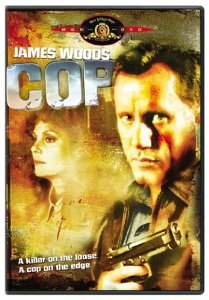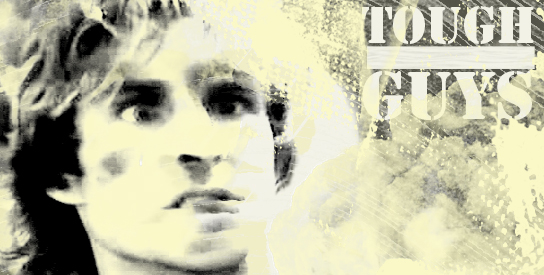 James Woods. Not only is he a fantastic and ridiculous actor, he’s also a fascinating person. Everything about the guy is odd – his absurdly high IQ, his intensely right wing political views (which I don’t subscribe to, by the way) and his controversial, often bizarre, statements. Outside of Tom Cruise, I struggle to think of an equally eccentric Hollywood actor who has had a career as successful as Woods. Needless to say, no matter what the film, I’m always interested in anything starring the guy.
James Woods. Not only is he a fantastic and ridiculous actor, he’s also a fascinating person. Everything about the guy is odd – his absurdly high IQ, his intensely right wing political views (which I don’t subscribe to, by the way) and his controversial, often bizarre, statements. Outside of Tom Cruise, I struggle to think of an equally eccentric Hollywood actor who has had a career as successful as Woods. Needless to say, no matter what the film, I’m always interested in anything starring the guy.
COP
USA, 1988, James B. Harris

Cop begins with Hopkins’s investigation of a gruesome murder scene. A woman has been butchered, hanged upside down and taunted postmortem with a letter written in the killer’s blood. Taking the poetry in the letter literally, Hopkins deduces that the murder is the work of a serial killer with victims dating back a decade earlier.
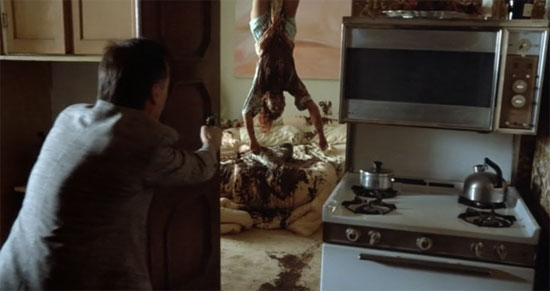
His superior (Raymond J. Barry), like all good cinematic police captains, doesn’t believe him and refuses to grant the backup he requests. Hopkins sticks to his guns and continues the investigation, which leads him to Kathleen (Lesley Ann Warren), a feminist poet and writer who has a strange connection to the killer. Kathleen, much like every other female character in the film, wants to have sex with Hopkins, despite his shockingly dismissive reaction to her story of high school rape. He actually looks at his watch at one point.
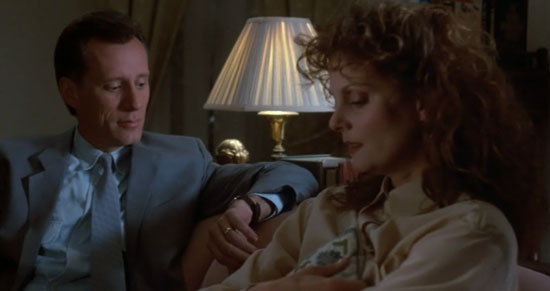
Cop is an almost dreamlike experience, mostly boiling down to the presence and performance of James Woods. Similar to Dirty Harry, Hopkins throws away his career (and his family life) in order to take down a villain. But in Dirty Harry, Harry seems like he has a plan. In Cop, Hopkins comes across as a maniac, truly making the audience wonder how he’s kept his job so long. From the get go, he’s breaking into houses, shooting other cops, and treating his boss like shit; all actions performed with a swaggering arrogance. Hopkins takes the idea of the renegade cop to new heights. Hopkins works alone – always and sometimes comically so – stewing in his self-inflicted madness.
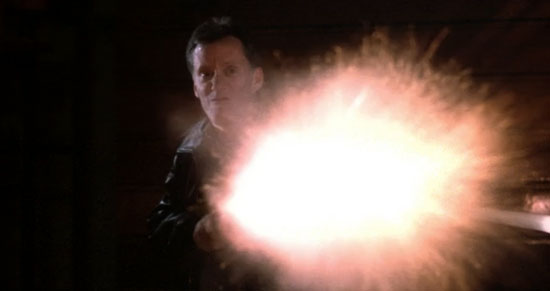
Again, in contrast to a character like Harry Callahan, Hopkins is quite the scumbag, his moral scruples full of contradictions. He cheats on his wife. He instantly forgets his family once they leave him. He manipulates his friends, and his sexual conquests. He even spews homophobic and anti-feminist rhetoric. He’s a fucking lunatic, but an incorruptible hero. Somehow, it works.
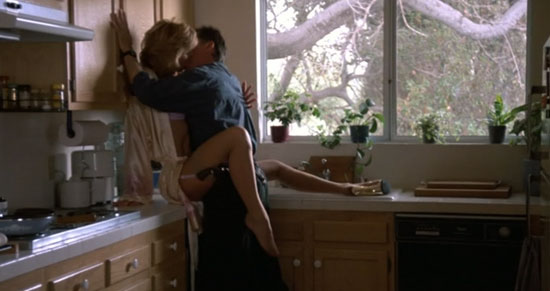
At first it may appear James B. Harris did not learn much during his time with Stanley Kubrick. Stylistically, Cop is mostly flat and uninspired, at times bordering on the cinematic quality of a television movie. This by the book approach offsets the script’s dark content and actually works in the film’s favour. Cop is genuinely tense with a few horrific set-pieces that clash nicely with the safe visuals. I have no idea if this was deliberate, but I liked it.
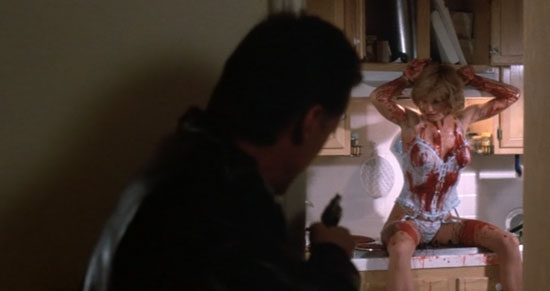
The script, also adapted by James B. Harris, is a compelling mess. Hopkins drives the film single-handedly, occasionally taking us on lengthy detours that become central to the story. While I wouldn’t call the film fast-paced, placing its plot over a condensed period of time gives it an almost real time feel. This pacing goes hand in hand with the frenetic obsession Hopkins has for the case, adding a brooding intensity and desperation to the proceedings.
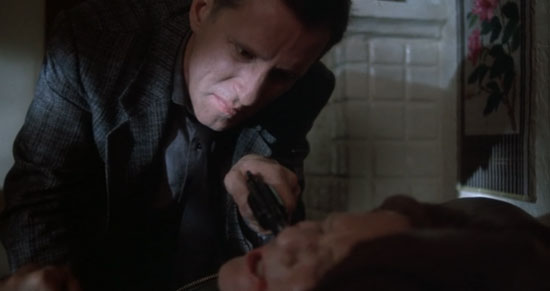
I won’t give it away, but Cop ends bluntly, again similar in theme to Dirty Harry. Unfortunately the muted television movie approach derides some of the finale’s power by avoiding a key shot, but luckily Woods emotes enough wild fury to make up for it. And really, as you can probably tell from the rest of this article, Woods is what elevates Cop far above your average detective story. Without him, it would be a watchable, somewhat gritty thriller. With him, it’s an engrossing and madcap blast.
Availability:
Cop has an easily found DVD release from MGM. No extras, but the print is clean and anamorphic. Recommended.
